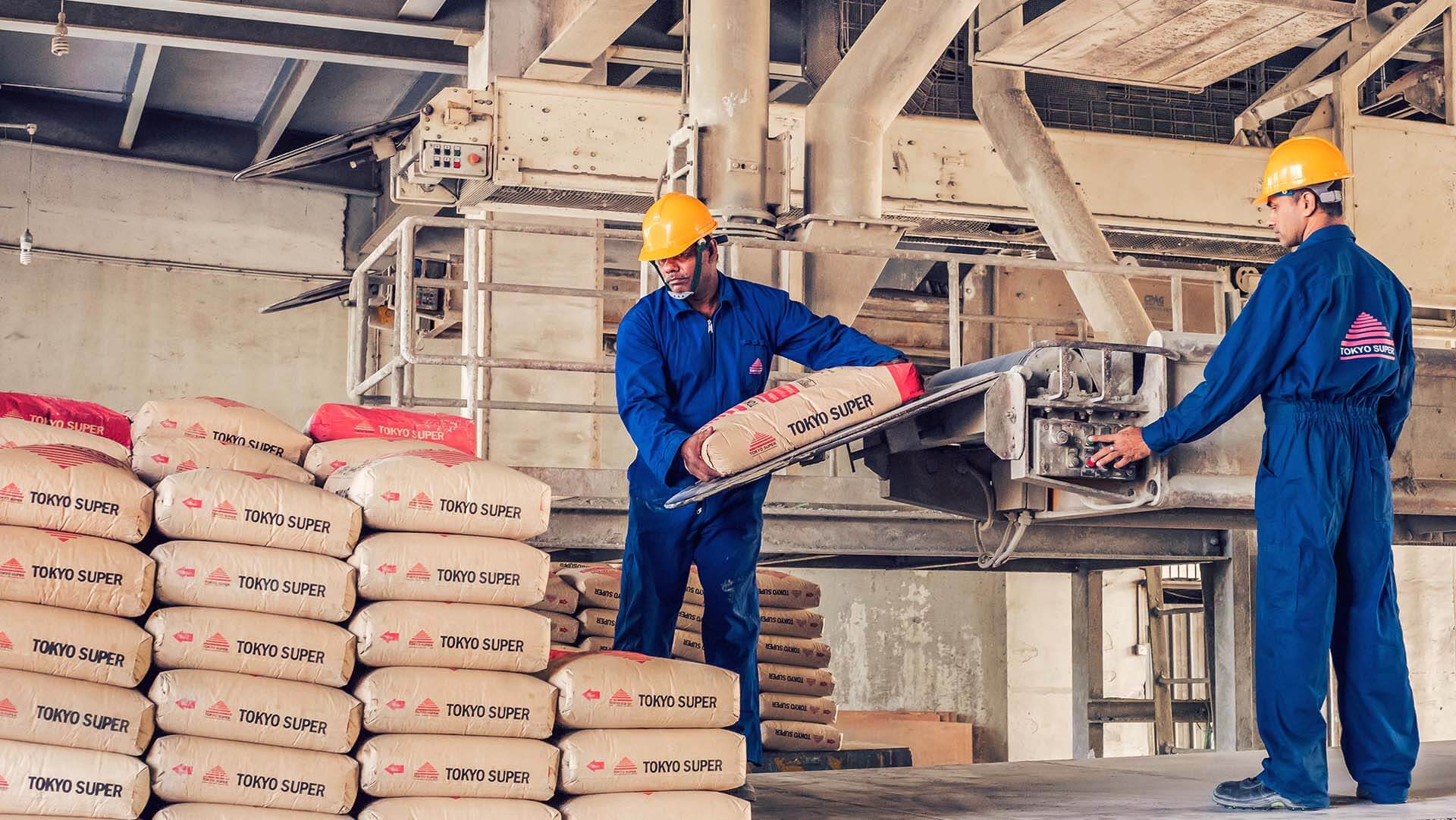 Quarterly Financial Review
Quarterly Financial Review
For the 2nd quarter ending 30th September 2023, Tokyo Cement Group (Tokyo Cement) reported a turnover of Rs. 13,311 million, and a profit after tax of Rs. 642 million. This is a 5% decline in turnover and an 80% decline in profits after tax against the same period of the previous year. A significant portion of this profit decline can be attributed to the uniquely high baseline of Q2 FY22/23, during which a 50kg Cement Bag had an MRP of Rs. 3,200/-. This price was reflective of the economic environment which had rising interest rates, inflating global raw material prices, unpredictable increases in transportation and energy costs, volatility of foreign exchange, and mitigating against exchange losses. However, in the quarter under review the price of a 50kg bag of cement was reduced by 28% to Rs. 2,300/-, reflecting a relative stabilisation of the local economic environment.
The comparatively smaller reduction in turnover vis-a-vis the considerable drop in price indicates a significant and encouraging growth in sales volumes year-on-year. The reduced profitability can be attributed to the reduction in prices that have been adjusted downwards periodically by the volition of cement manufacturers, for the benefit of the consumers. The profitability was further impacted by the addition of a CESS on the importation of clinker, increases in Administrative Expenses due to the imposition of the Social Security Contribution Levy (SSCL), and the raising of corporate tax from 18% to 30%.
The Economic Environment
The Group has observed a considerable increase in demand with the restart of construction activities. The Government’s decision to settle outstanding payments through treasury bonds to contractors eased payments to suppliers, allowing the resumption of projects previously halted due to cashflow issues. Furthermore, the Government announced the relaxation of the majority of import restrictions, that will allow accessibility to industrial, and construction related goods that were previously unavailable.
The year-on-year headline inflation, as measured by the Colombo Consumer Price Index (CCPI) decreased from 6.3% in July to 1.3% in September 2023. Consequently, the Central Bank reduced the Standing Deposit Facility Rate and the Standing Lending Facility Rate by 100 basis points (bps) to 10.00 per cent and 11.00 per cent respectively, in October 2023. Interest rates (Average Weighted Prime Lending Rate (Weekly)) steadily declined from 19.47% end June, to as low as 14.67% by end-September.
The Rupee stabilized significantly in comparison to Q2 FY22/23 during which period the currency depreciated to around Rs. 369-370/- to the USD, whereas in Q2 FY23/24 the Rupee appreciated to a lowest of Rs. 312-325/- to the USD. This downward yet stable movement of foreign exchange rates conveyed a much-needed stability for businesses to import goods and set prices. Additionally, a decrease in global raw material costs and freight rates allowed a reduction in prices across a wide range of commodities, including cement, from the beginning of Q2 FY23/24.
The biggest impact on financial performance across all sectors came with several tax increases. In addition to the imposition of the SSCL, and the increase in corporate taxes, a CESS was imposed on the importation of raw materials. For consumers, disposable income was further restricted with the increment of direct income taxes and significant increases in utility prices such as gas, fuel, water and electricity.
Outlook
In the short to medium term, the stabilisation of the currency, lowering inflation, and downward-trending interest rates should allow for commercial and private sector development projects to resume in the coming year. However, domestic consumption is expected to recover only in the medium to long term, due to reduced purchasing power, a weakened currency, and increases in utilities and taxes. The Government sustaining IMF-prescribed economic and fiscal policies will potentially allow it to qualify for access to foreign funding of infrastructure in the form of grants and loans. The Group is currently observing some resumption of both private sector and institutional construction projects.
However, the escalation of tensions in the Middle East and continued conflict in Eastern Europe will pose a significant impact on fuel prices, supply chains and freight costs across the globe, which would have an impact on the cost of imports. Tokyo Cement has been vigilantly observing trends and actively forecasting costs to adapt to shifting conditions of the global economic environment. Whilst acknowledging the road to recovery is long and tenuous, the Tokyo Cement Group is confident of the fundamentals of its business operations and is cautiously optimistic of a steady revitalisation of the construction industry.

